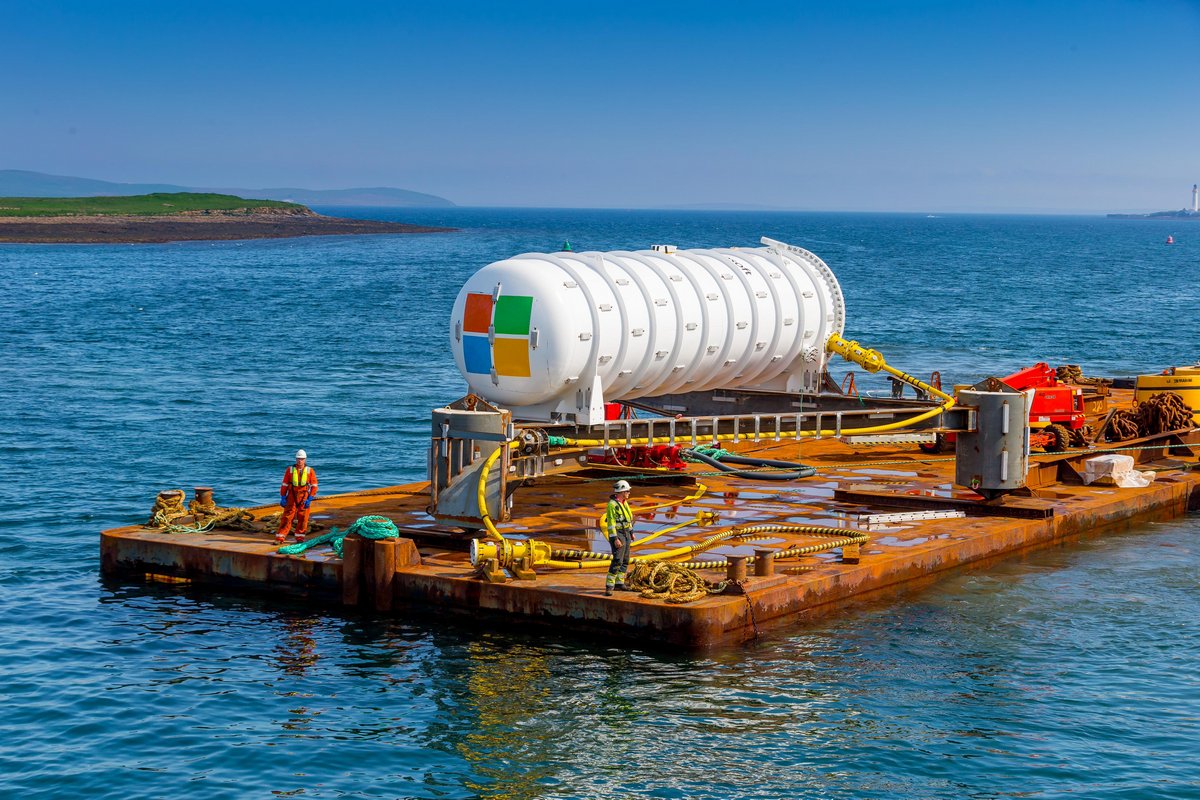A new data centre located near Shanghai will open in mid-October. Such solutions could save ‘up to 90% of electricity’, according to the vice president of the company in charge of the project
China is about to submerge a data centre in the sea near Shanghai as a solution to a problem that we will gradually begin to see more of: the high energy consumption of AI. The facility, which will become operational in mid-October, is one of the first commercial projects of its kind in the world and points to a new way of cooling servers without relying on traditional electricity-guzzling cooling systems.
The underlying problem.
Data centres are the backbone of the internet and AI, but they generate enormous amounts of heat. Keeping them cool through air conditioning or water evaporation consumes a staggering amount of energy, and with the rise of artificial intelligence, demand for these facilities has skyrocketed. China is seeking to reduce the carbon footprint of this critical infrastructure, and its solution involves submerging it underwater.
How it works.
The yellow capsule built near Shanghai houses servers that are kept cool by ocean currents, without the need for active cooling systems. According to Yang Ye, vice president of Highlander, the maritime company developing the project alongside state-owned companies, ‘underwater operations have inherent advantages’ and can save approximately 90% of the energy used for cooling. The facility will draw almost all of its electricity from nearby offshore wind farms, with more than 95% of the energy coming from renewable sources.
Technical challenges.
Putting servers under the sea is not easy. They must be protected from saltwater corrosion, for which a special glass-flake coating is used on the steel capsule. An elevator has also been installed to connect the main structure to a section that remains above water, allowing access for maintenance teams. Another challenge is establishing an internet connection between the underwater centre and the mainland, a more complex process than with conventional facilities. Researchers at universities in Florida and Japan have also warned that these centres could be vulnerable to attacks using sound waves conducted through water.

Environmental concerns.
Although the project promises to reduce emissions, questions remain about its ecological impact. The heat emitted by the servers could alter the surrounding marine ecosystem, attracting some species and driving others away. Andrew Want, a marine ecologist at the University of Hull, points out that ‘these are unknowns at this point, there is not enough research being done yet’. Highlander says that a 2020 independent assessment of its test project in Zhuhai indicated that the water remained well below acceptable temperature thresholds, but Shaolei Ren, an expert at the University of California, Riverside, warns that scaling up these centres will also scale up the heat emitted.
There are few precedents.
Microsoft tested this technology off the coast of Scotland in 2018, recovering the capsule in 2020 after declaring that the project had been successfully completed. However, it never commercialised it. The Chinese project is moving forward with the backing of government grants: Highlander received 40 million yuan for a similar project in Hainan province in 2022, which is still operational. The Shanghai facility will serve customers such as China Telecom and a state-owned AI computing company.
What comes next.
Experts agree that these underwater centres are unlikely to replace traditional ones, but will complement existing infrastructure in specific niches. According to Ren, current projects seek to demonstrate ‘technological viability,’ but much remains to be resolved before mass deployment. What is clear is that if such projects overcome all the technological challenges and succeed in greatly reducing the energy consumed by data centres, it will be a major plus for the company that manages to provide its solution in the AI race.





